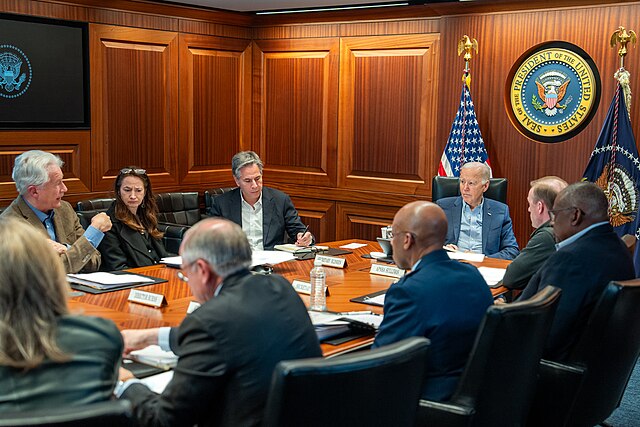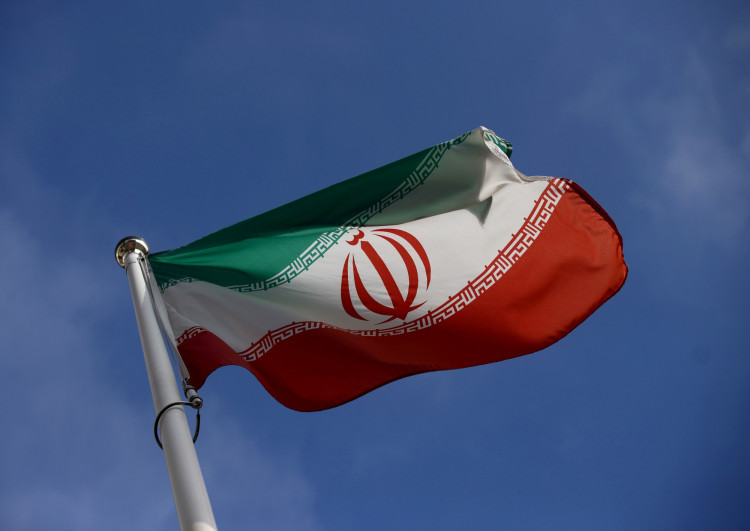Iran launched a massive airborne strike against Israel on Saturday, sending a swarm of approximately 200 explosive drones and missiles hurtling towards the country. The attack, which Iran claimed was in retaliation for the bombing of its embassy in Syria on April 1, marks the first time Iran has directly targeted Israeli territory and risks plunging the region into a wider conflict.
According to statements from both governments, Iran's offensive included dozens of ground-to-ground missiles, most of which were intercepted outside Israeli borders by Israel's air defense system with assistance from the United States. The Israeli military spokesperson, Rear Admiral Daniel Hagari, reported that the Iranian salvo amounted to more than 200 drones and missiles, causing light damage to one Israeli military facility and critically injuring a 7-year-old girl.
The attack came amid escalating tensions between the two countries, with Iran threatening retaliation for the April 1 strike on its Damascus embassy, which killed seven Iranian military advisers, including three senior commanders. Although Israel has not publicly taken responsibility for the embassy attack, it has not denied carrying it out either.
President Joe Biden, who had warned Iran against an attack on Friday with a simple one-word message of "Don't," cut his weekend visit to Delaware short to meet with his national security team at the White House. In a statement following the meeting, Biden affirmed the United States' "ironclad commitment to the security of Israel," pledging full support to defend Israel against any attacks by Iran and its regional proxies.
The U.S. has taken steps in recent days to protect Americans in Israel and prepare U.S. troops and warships in the region to defend Israel in the event of a direct attack. Reuters reported that U.S. forces helped intercept some of the Iranian drones bound for Israel, with two U.S. officials confirming that the U.S. military had shot down dozens of drone aircraft headed to Israel.

(Photo: Biden Situation Room)
Iran's mission to the United Nations issued a statement on Saturday, considering the retaliatory attacks to be a conclusion in the matter of the April 1 embassy bombing. However, the statement warned Israel that any future reprisals would be met by a "considerably more severe" response and cautioned the U.S. to "STAY AWAY!"
International reaction to the attack was swift, with many nations condemning Iran's actions and expressing solidarity with Israel. British Prime Minister Rishi Sunak denounced the Iranian regime's "reckless attack," stating that the strikes risk inflaming tensions and destabilizing the region. German foreign minister Annalena Baerbock also strongly condemned the attack, calling for Iran and its proxies to stop immediately.
The attack comes amid the ongoing war between Hamas and Israel, now in its seventh month, which has driven up tensions in the region and spread to fronts with Lebanon and Syria. The Gaza conflict has also drawn long-range fire at Israeli targets from as far away as Yemen and Iraq, with the current clashes threatening to morph into a direct open conflict between Iran and its regional allies against Israel and its main supporter, the United States.
As the situation continues to unfold, Israel's Prime Minister Benjamin Netanyahu convened his war cabinet at a military headquarters in Tel Aviv, while Israel and Lebanon announced the closure of their airspace on Saturday night. Jordan, which lies between Iran and Israel, readied its air defenses to intercept any drone or missile that violated its territory, with residents in several Jordanian cities reporting heavy aerial activity.
The coming days will be critical in determining the extent of Israel's response to the Iranian attack and the potential for further escalation in the region. With tensions already at a boiling point, the international community is closely monitoring the situation and calling for restraint from all parties involved to prevent the outbreak of a devastating region-wide conflict.






